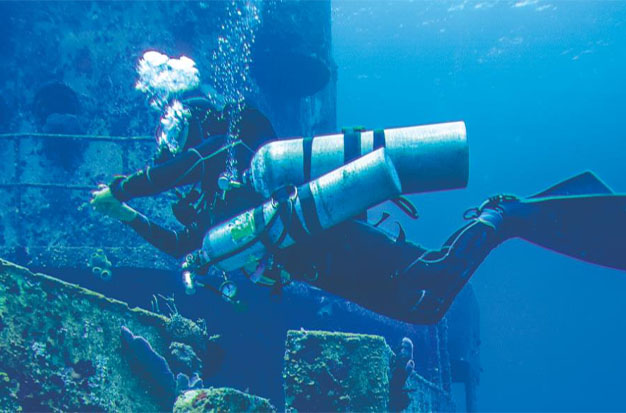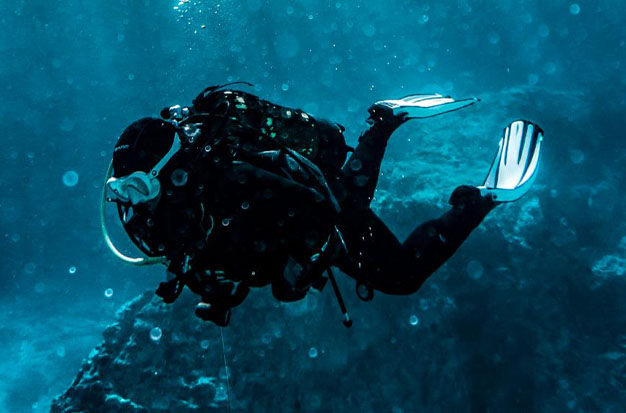
One man’s trash is another man’s treasure, as the saying goes, but few people are aware of the enormous amount of trash that each American discards annually. If you just dive headfirst into dumpsters, recycling bins, and trash cans, you’d be surprised at what you’d find. But is dumpster diving prohibited or just frowned upon?
Finding food, clothing, or valuables in trash cans becomes a necessity for some people, especially the homeless population. Others use websites like eBay, Facebook Marketplace, and LetGo to sell trash for money, which can be both a lucrative side job and an odd hobby. Is any of it, however, legal? If so, does the danger outweigh it?
The solution is as hazy as a trash can’s bottom.
How Does Dumpster Diving Work?
Getting the facts straight is necessary before determining whether dumpster diving is prohibited. explaining why it is justified to dive into dumpsters headfirst in search of hidden treasure, specifically What precisely is dumpster diving then? Dumpster diving is the activity of looking for recyclable or discarded items. To use, resell, or even consume discarded items is one of the motivations for searching through enormous bins of trash. More on that later.
The term “dumpster diving” first appeared sometime in the 1980s, a time of rife consumerism that fostered wastefulness and the constant pursuit of “newer” and “better” things. Dumpster diving is also known as “curb shopping,” “trash picking,” “street scavenging,” “dumpster,” and “containing.”
Each particular diving objective has a unique classification. For instance, a picker is said to be “scrapping” if they are primarily looking for metal to be recycled for cash.” A person is “gleaning” when they collect farm leftovers.”
Is Dumpster Diving Illegal?
Rummaging through the trash that has been left on public property, like a curb, until it is picked up, is typically regarded as legal. A person has effectively relinquished ownership of the items once they are dumped in a location like this because the area is now considered public property.
There is no “reasonable expectation of privacy” in the trash that is thrown out, so the police can search through it without a warrant.
A person who tries to rummage through the trash, however, may be charged with trespassing or even theft if the dumpster or garbage bin is still inside a building or on private property. Additionally, some counties or cities might declare a portion of their waste processing facilities off-limits to the general public. Depending on the jurisdiction, these distinctions might differ slightly.
Finally, even though dumpster diving may not be illegal in and of itself, using someone’s private information unlawfully is. Criminal repercussions, such as a fine or jail sentence, as well as civil losses compensation, may follow.
Dumpster Diving: Why Do People Do It?
For a variety of reasons, people might decide to dumpster dive. These motives might consist of:
- Making extra money. People occasionally start dumpster diving, in defiance of local laws prohibiting it, in an effort to profit financially from trash and waste containers. Some people look through dumpsters for valuable items in order to make extra money.
- Food is generally only thrown away when it has gone bad in many developing nations. Compared to developed nations like the US, where food is abundant, developing countries are food insecure. Food waste is a problem in the US, where it can reach 40% to 50%. There is a lot of food to collect in trash cans. In many nations, charities gather extra food from stores and restaurants to distribute to underprivileged areas.
- Electronic waste. Due to their rapid depreciation, high cost of repair, or high cost of upgrade, consumer electronics are frequently thrown into trash bins. Because many nonprofit organizations and educational institutions are unable or unwilling to accept used equipment, owners of computers may find it easier to dispose of them than donate them. Vendors occasionally throw away unsold, undamaged goods in landfills.
- Clothing. Thrift shops routinely reject used items that they cannot easily and cheaply resell. Most of the items that thrift shops accept are free. As a result, there are no costs involved in getting rid of disposable items like clothing, appliances, or donated goods that are either overstocked or fail to find a buyer after some time.
- Metal. Recyclable metals and other materials can be found in some trash cans and sold to recycling facilities. Additionally, scrap yards purchase recycled metals like steel and aluminum.
- Wood. Wood is frequently salvaged for use in home construction or heating.
- Empty cans and bottles. Empty cans and bottles can be exchanged for cash in many countries; however, the value of each can or bottle is typically quite low.
Dumpster Diving – Is It Trespassing?
Trespassing might occur if someone breaches a fence, enters a gate that is left open or enters a private area in any other way. There are back areas in many stores that are still regarded as private store property. An exception to this rule might be stored that leave their trash on a city street.
Without the building owner’s permission, dumpster diving is prohibited on private property. You could get a ticket or be arrested for dumpster diving on private property.
Is Dumpster Diving Disruptive Behavior?
If dumpster diving is done in a public place, complaints are made, or the police are called, it may be regarded as disorderly conduct. For inappropriate behavior in public, law enforcement may issue a warning, citation, or an arrest warrant.
As you sort through trash or leave items lying around, law enforcement may also issue you a fine for illegal dumping or littering. If you are asked to leave a place by law enforcement, it is best to comply and be courteous.

How Can Dumpster Diving Be Done Safely?
If you’re excited about dumpster diving but a little hesitant after reading this, don’t be concerned. Here are some pointers for staying safe while dumpster diving:
- Bring a friend along, especially at night. In addition to the fact that there is safety in numbers, you might also require an extra pair of hands.
- Just in case, have “getaway” transportation. “According to Tiffany, I always park directly in front of the dumpster I’m checking.
- Put on worn-out clothing and use appropriate skin care. Despite the fact that wearing protective gloves may not be necessary—both Tiffany and Maricela claim they don’t bother with them or “grabbing” tools—never wear your best attire.
- Bring cleaning supplies for both yourself and the objects. Maricela advises bringing hand sanitizer with you.
- Check the sell-by or expiration dates on any food or pet food items, and make sure none of the products have been recalled, advises Maricela.
What Defenses Do I Have Against Crimes Involving Dumpster Diving?
By doing things like:
- Make sure to destroy or shred any private and confidential information. Your name and address must appear on all mail and periodicals.
- Place your trash out no earlier than is necessary, and get your trash can back as soon as you can.
- Any instances of shady behavior in the neighborhood should be reported.
Do I Need A Lawyer For Help With Crimes Related To Dumpster Diving?
Dumpster diving may put one in very serious legal trouble. If you are a victim of identity theft or believe dumpster diving has harmed you, you might want to consult a criminal attorney. Your lawyer can assist you in court representation and provide guidance on how you might be able to recover any losses or damages brought on by the violations.
Take a look at LegalMatch’s top-notch database of criminal attorneys. Our criminal defense attorney database is extensive and well-rounded. Click this link to start the process of hiring an excellent, knowledgeable criminal law attorney in your area. By letting you select the topics that are important to your case, LegalMatch’s services can help you focus your search for legal representation. To present your case, there is no cost. Our service is always 100% confidential, and the attorneys presented will be local to you.
When Might Dumpster Diving Be Cause For A Lawsuit?
Dumpster diving might be illegal if the container is on private property or if the surrounding area is clearly marked as private or if the dumpster is on private property. Divers may be stopped by the police, issued a ticket, or even be arrested if they ignore any trespassing warnings or private property markings.
The public is frequently prohibited from entering certain garbage processing areas in some cities or counties. By jurisdiction, these distinctions might change a little.
If authorities could show that dumpster divers were searching through trash bags with the intention of engaging in criminal activity like identity theft, only then would dumpster diving be completely illegal. Once more, this is likely to happen if divers are searching through trash on private property. (It’s a good reminder to always shred legal documents before discarding them, too. Crimes like these can result in fines, jail time, and civil losses and damages in addition to criminal penalties.
Can You Make Money Dumpster Diving?
Dumpster diving is a surefire way to make money. Even though you always have the option to keep your finds or donate anything you don’t need, many people actually make a living by scuba diving.
Check out our post on how to thrift if you have things you want to get rid of, whether or not you got them from a dumpster. Additionally, you can sell items online at websites like Mercari, ThredUp, or Poshmark, on consignment, at pawn shops, and on consignment.
Conclusion
Dumpster diving is certainly worthwhile if you want to save money or even make some. Of course, you have to be prepared to put in the work and perhaps even get a little dirty.
Dumpster diving is an affordable and environmentally friendly way to ensure that perfectly good food and products don’t go to waste because many businesses discard perfectly good products.







